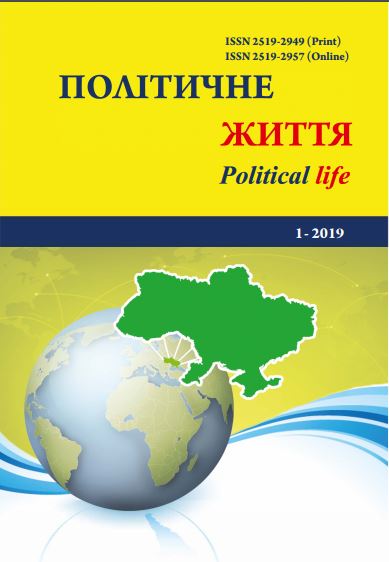The political regime in Slovakia in 1994-1998: the struggle of authoritarian and democratic development trends.
DOI:
https://doi.org/10.31558/2519-2949.2019.1.2Keywords:
Slovak Republic, political regime, V. Meciar, coalition, opposition, democratic transformationAbstract
The author of the article examines political development of Slovak Republic in 1994-1998 years through the prism of manifestation of authoritarian and democratic characteristics. A conclusion is made about the functioning of the hybrid political regime with a clear tendency towards authoritarianism.
The following undemocratic features of the political regime in 1994-1998 were highlighted: the power in the country is concentrated in the hands of the parliamentary-governmental coalition led by a charismatic leader; attempts to change institutional rules of political development in order to concentrate power; the transformation of the parliament (a parliamentary majority) into an instrument of influence of the head of the executive branch; neglect of the rights of the parliamentary opposition, obstructing its activities; the use of law enforcement services, special services for political struggle, prosecution of opposition representatives; restrictions and violations of the rules of electoral competition and democratic expression of the will of the citizens; strengthening control over the media; incitement of national intolerance and increase of value fragmentation of society; foreign policy goals were sacrificed to domestic political tasks regarding the concentration of power; non-transparent privatization and corruption.
At the same time, democratic features can be noted alongside authoritarian ones: activity of civil society, opposition parties, non-governmental organizations; crystallization of the political interests of society in the planes «pro-Meciar–anti-Meciar» and «East–West»; citizens' awareness of the undemocratic actions of the government and the desire to resist it, especially in the context of the 1998 elections; relatively independent and critical position of institutions included in the system of power distribution (President, Constitutional Court, parliamentary opposition).
Factors and preconditions, which did not promote democratization, were found out: imperfect institutional structure, conflict type of political culture, differentiation of the political elite, actualization of the national question, weak distribution of democratic values, social economic difficulties, etc.
References
Опыт демократических преобразований Словакии. Братислава: Институт общественных проблем, 2007. 213 c.
Leško М. Mečiar a mečiarizmus : politik bez škrupúl, politika bez zábran. Bratislava: VMV, 1996. 239 s.
Od Mečiara k Dzurindovi. Slovenská politika a politický systém v prvním desetiletí samostatnosti. Brno: Masarykovа univerzita v Brně, 2003. 177 s.
Slovensko: problémy konsolidácie demokracie : spor o «pravidlá hry» pokračuje / ed. S. Szomolányi. Bratislava: SZPV, Nadácia Eberta, 1997. 207 s.
Sľuby a realita. Slovenská ekonomika 1995–1998. Bratislava : M.E.S.A 10 – Centrum pre ekonomické a sociálne analýzy, 1998. 175 s.
Szomolányi S. Kľukatá cesta Slovenska k demokracii. Bratislava: Stimul, 1999. 121 s.
Zákon z 20. maja 1998, ktorým sa mení a dopĺňa zákon Slovenskej národnej rady č. 80/1990 Zb. o voľbách… Zbierka zákonov. 1998. Č. 187.

